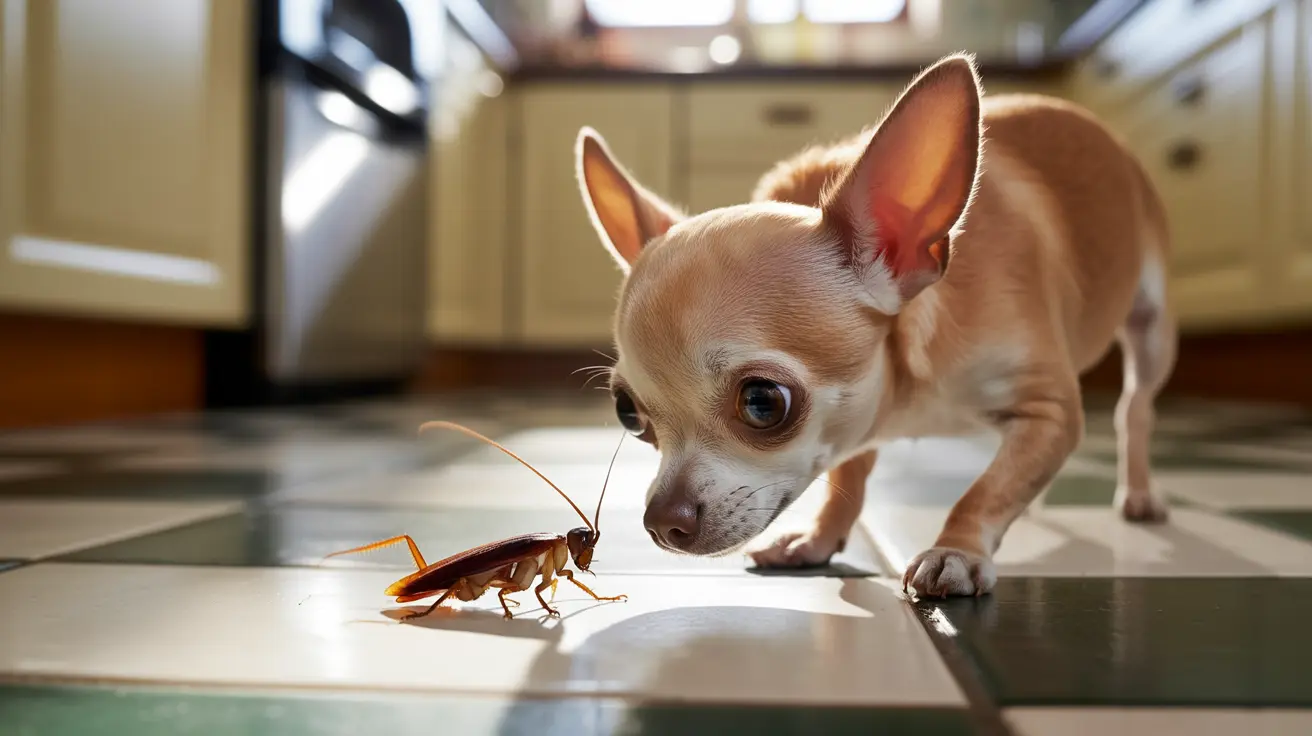Why Dogs Are Attracted to Cockroaches
Dogs naturally possess a strong prey drive that makes moving insects particularly enticing. This instinctive behavior stems from their ancestral hunting habits, and even well-fed domestic dogs may chase and consume insects out of curiosity or playfulness.
Health Risks of Dogs Eating Cockroaches
Bacterial Infections
Cockroaches are known carriers of numerous harmful bacteria, including E. coli and salmonella. When dogs consume these insects, they risk exposure to these dangerous pathogens, which can lead to serious gastrointestinal infections.
Parasitic Infections
These insects often harbor various parasites, including roundworms and tapeworms. When dogs eat cockroaches, they may become infected with these parasites, potentially leading to health complications that require veterinary intervention.
Pesticide Exposure
Perhaps the most dangerous aspect of cockroach consumption is the potential exposure to pesticides. Many cockroaches have come into contact with insecticides, which can be toxic to dogs if ingested.
Signs Your Dog Has Eaten a Cockroach
Monitor your dog for these common symptoms after cockroach consumption:
- Vomiting or diarrhea
- Loss of appetite
- Lethargy
- Excessive drooling
- Stomach discomfort
- Unusual behavior or restlessness
Prevention and Safety Measures
Home Management
The best way to protect your dog is to prevent access to cockroaches:
- Keep your home clean and free of food debris
- Seal potential entry points
- Store pet food in airtight containers
- Use pet-safe pest control methods
- Regular professional pest control services
Training and Supervision
Work on training your dog to avoid chasing or eating insects. Maintain close supervision during walks and outdoor activities, especially in areas where cockroaches might be present.
When to Contact Your Veterinarian
Seek immediate veterinary care if your dog shows any of these serious symptoms:
- Severe vomiting or diarrhea
- Signs of allergic reactions
- Tremors or seizures
- Difficulty breathing
- Extreme lethargy or collapse
Frequently Asked Questions
Is it safe for dogs to eat cockroaches, or can it harm their health?
While cockroaches themselves aren't typically toxic to dogs, eating them can be harmful due to bacteria, parasites, and potential pesticide exposure. It's best to prevent your dog from consuming cockroaches.
What symptoms should I watch for if my dog eats a cockroach?
Watch for vomiting, diarrhea, lethargy, loss of appetite, and unusual behavior. In cases of pesticide exposure, look for tremors, excessive drooling, or seizures.
Can eating cockroaches cause parasites or infections in dogs?
Yes, cockroaches can transmit various parasites and bacteria to dogs, including roundworms, tapeworms, E. coli, and salmonella, potentially causing serious infections.
How can I prevent my dog from eating cockroaches in the home?
Maintain a clean environment, use pet-safe pest control methods, secure food storage, and train your dog to avoid chasing insects. Regular professional pest control can also help reduce cockroach populations.
What should I do if my dog eats a cockroach that might have been exposed to pesticides?
Contact your veterinarian immediately if you suspect pesticide exposure. Monitor your dog closely for symptoms like tremors, excessive drooling, or seizures, which require immediate medical attention.
Conclusion
While dogs eating cockroaches is a common occurrence, it's important to understand the potential risks and take preventive measures. By maintaining a clean environment and responding appropriately when incidents occur, you can help protect your pet from the dangers associated with cockroach consumption.






